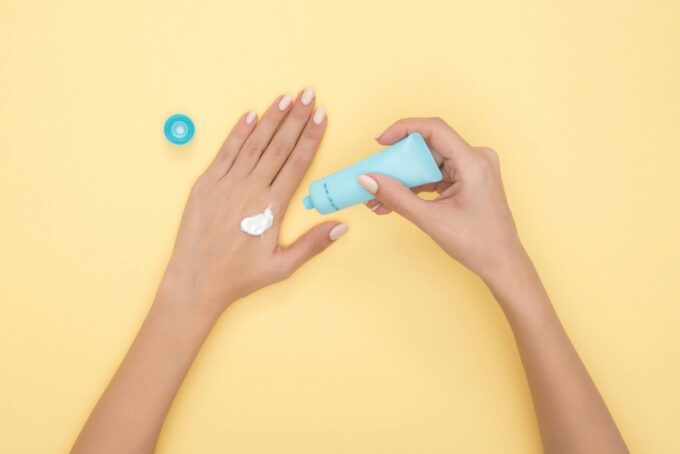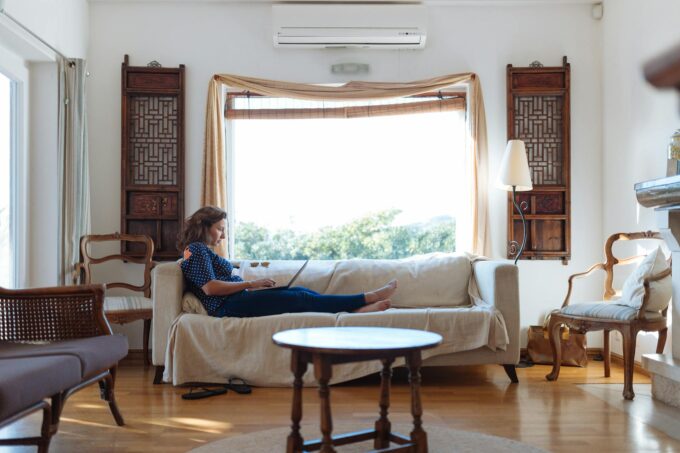Early onset of wrinkles, age spots, and fine lines are some of the most common signs of premature aging in younger people. There’s also the small issue of niggling aches and pain. Premature aging happens when your body ages faster than it should, and it’s more common than most people think. Several factors are responsible for this, including chronic stress, extreme dieting, consuming unhealthy substances, not getting enough sleep, and excessive UV exposure. Thankfully, there are several strategies you can incorporate into your daily routine to help prevent premature aging. Here are some of them.
1. Protect your skin from the sun’s harsh UV rays

Overexposure to the sun’s harsh UV (ultraviolet) rays is one of the most common causes of premature aging. UV rays can damage collagen and elastin fibers in the skin, and these are responsible for preserving the skin’s youthful elasticity. This damage leads to wrinkling, age spots, and sagging. If your job or lifestyle requires you to spend a lot of time under the sun, it’s important that you give your skin the right protection. In most cases, a simple, broad-spectrum sunscreen is all the protection you need. If you have a moisturizing sunscreen, that’s even better. Apply your sunscreen before stepping out, and reapply every couple of hours if you’re spending the whole day under the sun. Additionally, wear protective clothing or accessories like sunglasses and hats and seek shade whenever you can. Generally, it’s best to avoid the sun during its peak hours.
2. Practice stress management
As mentioned in the introduction, chronic stress is another common cause of premature aging, so it’s important to find ways to prevent it. It can take a toll on your skin, exacerbate various skin conditions, and accelerate your skin’s aging process. Studies show that stress can increase inflammation in the body, make it difficult for wounds to heal, and negatively impact various skin conditions. The skin glands also produce more oil when under stress, worsening acne or leading to new outbreaks. All these can speed up your skin’s aging process. Practicing stress management will help you minimize stress or keep it at bay. Stress-reducing techniques like meditation, deep breathing exercises, and yoga are very helpful. You can also indulge in relaxing habits or activities like journaling, reading, and sleeping. Consuming cannabinoids like THCA flower has also been proven to induce calmness and help with stress management.
3. Establish a healthy and consistent skincare routine
Taking good care of your skin is paramount. You want to invest in a skincare regimen tailored to your skin’s uniqueness and capable of addressing common skin problems. While there are different skin products on the market, investing in the basics can make all the difference. Things like washing your skin twice a day, exfoliating, and moisturizing are key. Regular washing will remove trapped dirt, oil, and impurities that clog the skin’s pores and cause acne outbreaks. Exfoliating once or twice a week will help your skin shed off dead cells and promote cell turnover. Moisturizing daily will keep your skin supple, hydrated, and healthy-looking. Of course, you can also invest in skin products that treat specific skin conditions you may have. But it’s best not to add too many cosmetic products to your skincare routine. Also, it’s even better to avoid using products containing harsh chemicals like PEGs, propyl parabens, methyl, aluminum, formaldehyde, and phthalates.
4. Avoid sitting for more than 3 hours at a time

According to research, sitting down for more than 3 hours daily can shorten a person’s life expectancy by 2 years. This is true even if you’re active and refrain from dangerous habits like smoking and excessive drinking. Understandably, some jobs or lifestyles require being in a sitting position for hours, but that can easily speed up your aging. So, it’s best to avoid being dormant. Take regular breaks during long sitting hours by walking around for a few minutes.
5. Avoid smoking and excessive alcohol intake
If you’re looking for another reason to quit smoking, this is it. Studies show that smoking constricts the blood vessels, limiting oxygen and nutrient supply to the skin. The longer you smoke, the more you starve your skin of the nutrients and oxygen it needs, making you appear older. You’ll notice your skin looking sallow, dull, and wrinkled the more you smoke. Smoking also damages the skin’s collagen and elastin fibers, making it look years older than it should. Similarly, excessive alcohol consumption can slowly damage your skin by dehydrating and weakening its protective barrier. That can easily make way for chronic inflammation followed by oxidative stress. Lower your alcohol intake and quit smoking, and you’ll start to notice a significant improvement in your skin health and overall appearance.














